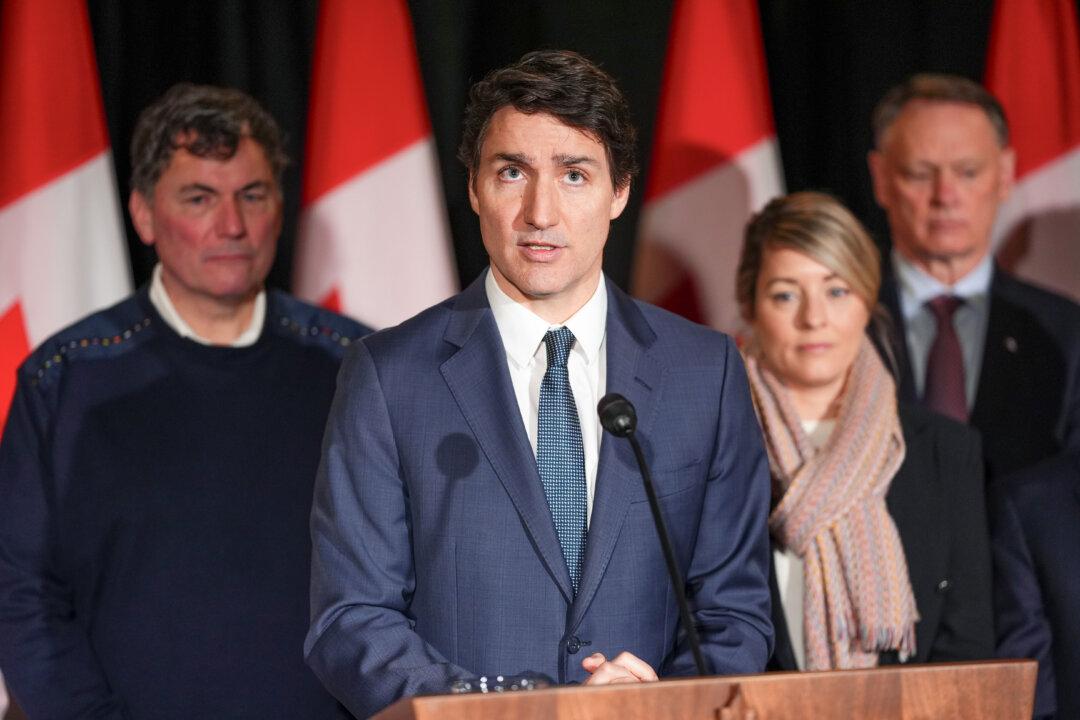Outgoing Canadian Prime Minister Justin Trudeau warned on Jan. 23 that the country would respond with retaliatory tariffs if the United States were to follow through with plans to impose sweeping tariffs on Canadian products.
Speaking to reporters in Ottawa, Trudeau promised Canada would counter with a “strong and robust response” if newly inaugurated President Donald Trump were to make good on his promised tariffs, “whether it be back on Jan. 20th, on Feb. 1st or Feb. 15th as a Valentines Day present, or on April 1st or whenever.”




